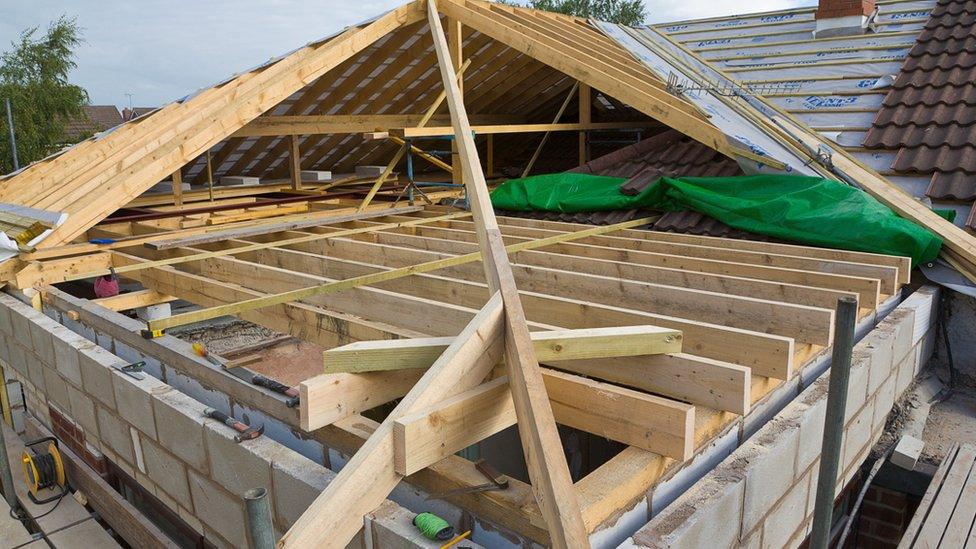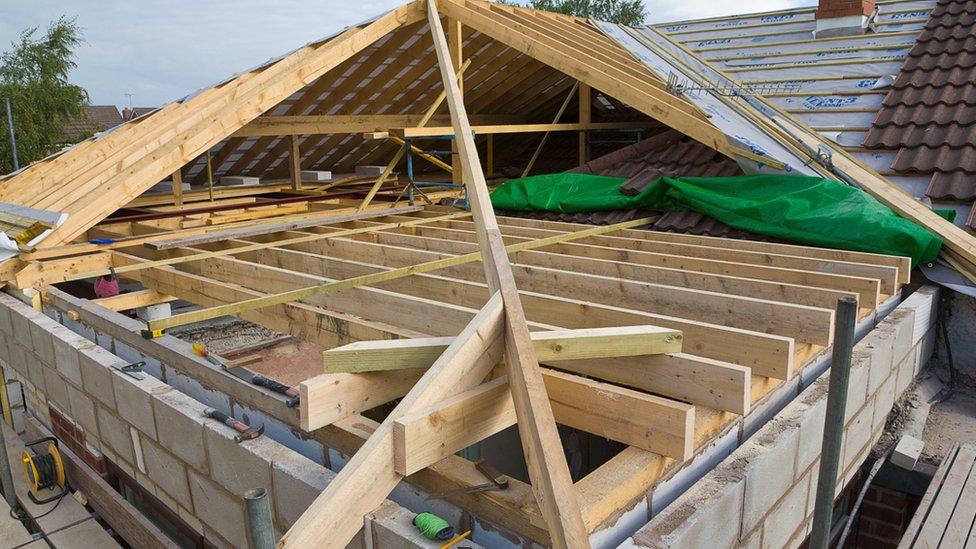Northern Ireland's private sector growth stalled by Omicron
- Published

A resurgence of Covid-19 infections, linked to the omicron variant hit economic activity, the survey suggests
Growth in the NI private sector almost ground to a halt in December as the Omicron variant hit economic activity, a survey suggests.
The Ulster Bank surveys private sector activity monthly, in what is considered a reliable indicator of the economy.
The December survey suggests that retail and manufacturing experienced growth.
Other services, including hospitality and construction, reported reduced activity.
Richard Ramsey, chief economist at Ulster Bank, said: "A resurgence of Covid-19 infections, linked to the Omicron variant, in December acted as a headwind for growth throughout the UK."
"No rapid improvement is anticipated anytime soon with new orders declining for the fourth month running and export orders contracting sharply," he added.
However, businesses seem optimistic that there will be a further bounce back later this year.
The survey showed firms remained confident that output will increase over the course of 2022.
Retailers were the most confident, followed by manufacturers and service providers.

Construction reported reduced activity
'Severe inflationary pressure'
Bucking the wider trend, construction firms were pessimistic regarding the outlook; that may reflect the fact that construction has been most exposed to price rises for its inputs.
Input cost inflation eased for the second month in a row but remains high, with increased freight and fuel costs widely reported, alongside rising prices for raw materials and energy.
Mr Ramsey said: "2022 is going to be dominated by three economic themes that were prevalent at the end of last year - slower growth, severe inflationary pressure, and the stop-start disruption associated with Covid."
Related topics
- Published8 November 2021
